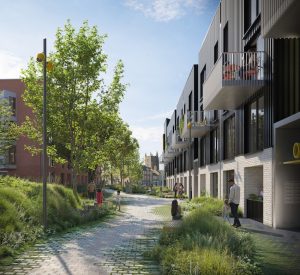University of Warwick spearheads research into use of composities for building

CIVIL and structural engineers are to explore the durability of high-tech composite materials of the type used in aerospace and automotive industries in a bid to unlock their full potential for infrastructure and civil engineering works.
The University of Warwick, which is leading a consortium including five other UK universities – including Leeds, has been awarded a £1.3m grant by the Engineering and Physical Sciences Research Council.
Composite materials have been utilised by firms such as Umeco for some time and are used extensively in the automotive/motorsport and aerospace sectors owing to their strength and weight-saving benefits
For these reasons, they also offer possibilities for new national infrastructure projects, especially in bridges and low-rise buildings.
However, before they can be used in the built environment, engineers need to be able to predict exactly how long into the future their structures will be fit for purpose.
The DURACOMP project will address this challenge by carrying out physical testing of composite materials, and structural connections and joints, as well as developing computer modelling of their behaviour for lifetimes in tens of years.
Professor Toby Mottram of the School of Engineering at the University of Warwick said: “High-performance, light-weight composites have transformed sectors like automotive and aerospace and there is real potential that they could do the same for the UK’s national infrastructure.
“But as buildings and bridges have to be designed to last longer into the future than cars or aeroplanes, we need to understand exactly how their structural performance will change with age and to possible climate changes.
“The deliverables from this grant will help us to establish the durability of these materials and their structures, through a combination of collecting experimental data and advancing computer modelling.”
The University of Warwick is collaborating with the University of Bath, the University of Bristol, the University of Glasgow, the University of Leeds and Newcastle University on the project.
The grant is part of a total of £4.7m awarded by EPSRC for ground and structural engineering projects.
Welcoming the funding, Professor Barry Clarke, President of the Institution of Civil Engineers and Professor of Civil Engineering Geotechnics at the University of Leeds, and a member of the team that reviewed the state of research in the field, said: “I am very pleased to welcome this funding. These projects will look at issues which are both current and emerging and can improve the sustainability of our infrastructure and buildings. This is a positive example of the community and research councils working closely together.”









